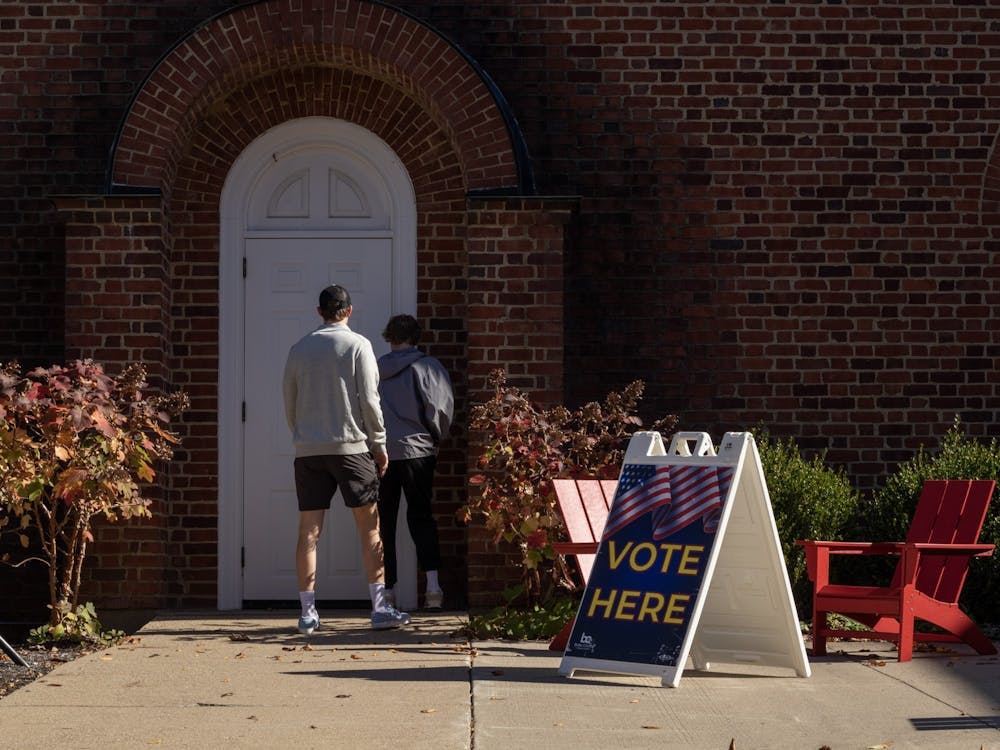The upcoming election has seeped into the everyday lives of students, whether that’s seeing a political ad while watching TV or they’re walking to class and seeing yard signs. With many important issues both nationally and locally, it’s hard to escape politics. How are students navigating this election?
Politics in the classroom
Departments like social justice and women and gender studies host many discussion-based classes where politics are often brought up. Tori Coss, a senior zoology major, often finds themself in these discussion-heavy classes.
Issues like body autonomy, sexism and domestic violence are all issues that can be brought up in these classes with political leanings. Students taking social justice classes may have strong opinions on critical race studies, international conflict and economic struggles.
“We always try to move it back to current events,” Coss said, “[and] what’s going on in the world.”
Coss said her professors make sure to present the facts of the situation the class discusses so that people can be well-informed before they come to their own conclusions. When students say something incendiary, professors try to have a conversation about it.
“No one in those classes I’ve taken has ever just been immediately shut down,” Coss said. “There’s never been an instance where a professor’s like, “No, that's wrong.’ They've all been like, ‘Well let's talk about it.’”
Dorain Void, a senior individualized studies and sociology major, said she her professors who don’t teach political classes try to avoid discussion of politics in their classes.
“I feel like in most classrooms, professors feel compelled to [not] talk politically,” Void said.
Gen Z and the election
For many Miami students, this is the first presidential election where they are eligible to vote. Brian Marshall, chair of the department of political science at Miami, said his students are concerned by current political issues.
“I think a lot of students paid attention to things like where the candidates stood,” Marshall said, “and particularly the Israeli-Palestinian (sic) conflict.”
Enjoy what you're reading?
Signup for our newsletter
According to Marshall, Many young voters are very opinionated when it comes to things like foreign policy and reproductive rights, which can influence their vote, and that a student’s vote isn’t something that should be ignored.
“I think as close as this election is going to be, that young people have a huge opportunity in front of them to be very, very influential in this election,” Marshall said. “And I hope they are because our young people are going to be the leaders of tomorrow and leaders of today and tomorrow, right?”
Zach Armes, a senior chemical engineering major, has voted in previous elections. Armes agrees with Marshall that students need to vote.
“Voting is important because it grants individuals the power to officially voice their opinions politically on various matters that affect their daily lives,” Armes said.
Feelings about the debate
Both the presidential and vice presidential debates took place in the last month leaving students with mixed feelings. Void watched both debates.
“The one between Vice President Harris and Trump was very entertaining,” Void said. “But one between Tim Walz and JD Vance was kind of disappointing.”
Void said she couldn’t finish watching the second debate.
“I'm not a U.S. citizen,” Void said. “ But my fate is deeply determined by the outcome of the vote of the upcoming election. There's nothing I can do about it.”
Void, a trans-woman and Chinese citizen, is among the many international students who can’t vote in the election but whose lives can be altered based on the results.
Debate viewers tend to be already politically engaged and watching the debate can just cement their previous views instead of changing them, according to Michigan State University.




